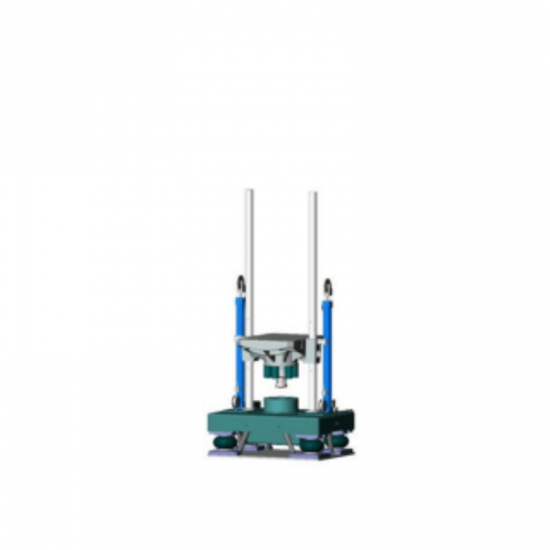Lith Corporation, founded in 1998 by a group of material science doctor from Tsinghua University, has now become the leading manufacturer of battery lab&production equipment. Lith Corporation have production factories in shenzhen and xiamen of China.This allows for the possibility of providing high quality and low-cost precision machines for lab&production equipment,including: roller press, film coater,mixer, high-temperature furnace, glove box,and complete set of equipment for research of rechargeable battery materials. Simple to operate, low cost and commitment to our customers is our priority.
An Acceleration Mechanical Shock Test Machine is a specialized piece of equipment designed to simulate and measure the effects of sudden, intense mechanical shocks on products, including batteries, electronic components, and other materials. This type of testing is crucial for assessing the durability and reliability of these items under conditions that mimic real-world impacts, such as drops, collisions, or sudden movements. Such tests are essential in industries like automotive, aerospace, consumer electronics, and energy storage systems to ensure product safety and performance.
Key Features
1. Shock Simulation
The machine generates controlled mechanical shocks with precise acceleration, pulse duration, and waveform (e.g., half-sine, sawtooth, trapezoidal). These parameters can be adjusted according to specific test standards or custom requirements.
2. Adjustable Intensity
Offers flexibility in setting different levels of shock intensity to simulate various impact scenarios. This allows for testing a wide range of products under conditions they are likely to face during handling, transportation, or use.
3. Programmable Control System
Equipped with an advanced control system that allows users to program and execute complex test profiles. This includes the ability to define multiple shock events in sequence, adjust frequency, and set specific environmental conditions if integrated with environmental chambers.
4. Data Acquisition System
Includes high-precision data acquisition systems to monitor and record key parameters such as acceleration, velocity change, displacement, and any changes in the tested product’s performance before and after the shock event. This data is critical for analyzing structural integrity and potential failure modes.
5. Safety Features
Designed with robust safety features, including protective enclosures, emergency stop buttons, and sometimes remote operation capabilities. These features ensure operator safety during testing, especially given the potential hazards associated with generating high-intensity shocks.
6. Versatile Fixtures
Comes with adjustable fixtures to securely hold products of various sizes and shapes during testing. Proper securing ensures accurate and repeatable shocks, which is vital for obtaining reliable test results.
7. Environmental Controls (Optional)
Some models may include integrated environmental chambers to conduct tests under controlled temperature and humidity conditions. This allows for simulation of extreme environments where the product might be used or stored.
Battery Mechanical Impact Tester
Applications
Automotive: Ensuring that components in vehicles can withstand impacts encountered during accidents or rough handling.
Aerospace: Assessing the safety and durability of components against mechanical shocks experienced during launch, flight, and landing.
Consumer Electronics: Testing devices like smartphones, laptops, and wearables for their ability to survive accidental drops or impacts.
Energy Storage Systems: Verifying the robustness of large-scale battery systems used in renewable energy installations against mechanical shocks.
Military and Defense: Evaluating military equipment under extreme environmental conditions as part of compliance with military standards like MIL-STD-810.
Considerations When Choosing an Acceleration Mechanical Shock Test Machine
Test Requirements: Ensure the machine meets your specific test protocols, including shock intensity, waveform, and required data recording capabilities.
Product Size and Type: Select a machine capable of accommodating the size and shape of the products you intend to test.
Budget Constraints: Costs vary based on capacity, features, and brand. Determine which features are necessary versus those that are optional.
Ease of Use: Look for user-friendly interfaces and straightforward setup procedures to facilitate efficient testing.
Maintenance and Support: Consider the availability of spare parts, customer support, and maintenance services offered by the manufacturer.
Compliance Standards: Verify that the machine complies with relevant industry standards and certifications required for your application, such as IEC, ISO, or military standards.
By carefully considering these factors, you can select an Acceleration Mechanical Shock Test Machine that not only fits your current testing needs but also supports future growth and compliance requirements. Ensuring the mechanical robustness of products through rigorous shock testing is essential for enhancing product safety and reliability across numerous industries.
Manufacturers specializing in material and product testing solutions often provide Acceleration Mechanical Shock Test Machines as part of their offerings. Consulting directly with these manufacturers or suppliers can help find a solution tailored to specific testing requirements and ensure it meets all necessary safety and performance standards. Examples of such manufacturers could include companies known for their comprehensive range of testing equipment, such as Instron, MTS Systems, and others.




 Online service
Online service
